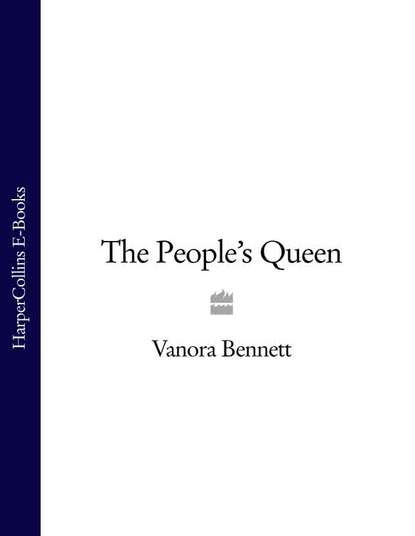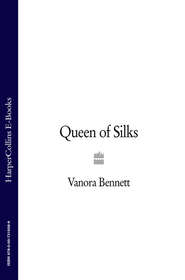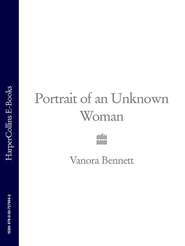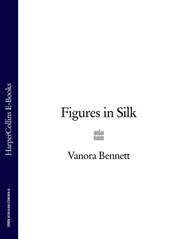По всем вопросам обращайтесь на: info@litportal.ru
(©) 2003-2024.
✖
The People’s Queen
Настройки чтения
Размер шрифта
Высота строк
Поля
Walworth’s saying: ‘Ever since I’ve held office in the City, we merchants have been complaining to the King that he was selling Italians too many special licences to export wool from England without paying customs to you’ – he bows at Chaucer the Customs Comptroller – ‘as all Englishmen have to. We’ve complained long and loudly. And, it seems, he heard us. For at least two, maybe three years, no more licences have been granted to Italians.’
Chaucer has to half jog to keep up with Walworth’s stride. He puffs, ‘Yes?’
‘But someone else has been granted a special licence.’ Walworth turns and arches an eyebrow. He wants Chaucer to guess who. It’s a test of Chaucer’s wit.
‘Lyons,’ Chaucer puffs, suddenly seeing it all – exactly how Lyons has become so rich, and why the merchants, who so obviously dislike and mistrust the Fleming, are nevertheless cautiously trying to bind him closer, and buy his loyalty to them, by giving him a post in their City administration. And why they’re smarting.
Walworth nods. He looks pleased with Chaucer’s quick response.
‘We arrested some men at Southampton a week or so ago,’ he confirms. ‘They were loading cargo there. Sacks and sacks of wool, on a ship bound for Flanders. No stop at London or Middleburg planned, where they would have to pay customs. Naturally we tried to confiscate the cargo. My wool investigators are allowed to, even outside London, whenever they find contraband (and we’d had a tip-off that that’s what this would be). But we couldn’t, with this cargo, because there was nothing illegal about it. The men had a licence. An absolutely official licence, all green sealing-wax and royal stamps, straight from the King’s administration. Made out to Richard Lyons.’
Chaucer wishes he could catch his breath.
‘The King…wrote…Lyons a licence?’ he pants. ‘Himself?’ He doesn’t want to believe the King would have done down the merchants if he’d promised them not to sell any more foreigners any more special licences. Like everyone in the King’s service, and in the country, he adores the old man. But he’s heard about too many slips – and seen that fleeting, amused look in the royal eye too often – to know that loving the King and trusting him, at least with money, can’t always be quite the same thing.
The whole business with special licences has always been pure foolishness, in any case. In principle, the King is cheating his own royal coffers – and therefore himself – by selling foreigners the right not to pay England’s wool tax. But for a King who’s always short of money, right here, right now, who’s constantly scrabbling around for the coin to put down on that war-horse, or castle wing, or costume, on top of all the war expenses…well, in practice, it’s tempting, any offer of a bag of actual gold, in the hand, no questions asked. Of course it is. Chaucer understands that. And as for the King breaking his royal word to Walworth and the other merchants, well, Chaucer can imagine how the King might finesse that, too. He can see Edward telling himself, with a bit of a grin, that even if he’s promised not to sell any more licences to Italians, if it’s a Fleming who comes along, offering the right price, why, that’s quite a different matter…
There’s resignation in Walworth’s laugh. ‘Things are never that simple with my lord the King,’ he says. ‘No, he didn’t write the licence himself.’
Chaucer’s panting, and guessing, ever more wildly by now. ‘A forgery?’ he says, trying not to sound too hopeful. He’d rather it was that.
Walworth shakes his head. ‘Not that, either…the licence was signed’, he says sadly, ‘by Baron Latimer. It was quite legal. He’s the chamberlain. He’s authorised to sign on the King’s behalf. The King’s hand wasn’t on it, but he must have known.’
‘But then…’ Chaucer is utterly out of his depth by now. So the licence was legal, and the King just slyly hiding behind his servant’s signature. That much he’s got straight, now. But what he can’t for the life of him see is how Richard Lyons ever met the King to do this private deal in the first place? Flemish merchants don’t go running around at court without an introduction, and Walworth, who is sometimes received at court, would obviously never take along a chancer like Lyons. Someone else must have taken him to the King. But who?
It is only now that the other, separate, picture Chaucer woke up with today comes back into his mind. Latimer looking at Lyons, and Lyons looking back across Chaucer’s table, groaning with all that food provided by Alice Perrers. And Alice in between them, eyes darting from one to the other, and a little smile on her lips…
‘…Mistress Perrers,’ he says flatly. Of course. He’s known all along, really, bar the details. It will be Mistress Perrers who’s introduced the foreign merchant to the King, or simply made the deal for him without an introduction. She likes money, and she likes stirring things up, just for fun. She enjoyed putting Philippa’s nose out of joint with her feast, Chaucer saw yesterday, as much as she enjoyed making sure that the merchants were being properly fed. She’ll be taking a cut from this, just as Latimer will be. She has fingers in every pie, doesn’t she?
He shakes his head in reluctant admiration. You have to admire Mistress Perrers’ sheer audaciousness. Suggesting to him that he should be keeping watch on Walworth and his men, while all along she knows that if there’s mischief in the City, it’s happening somewhere entirely different; somewhere much closer to her own good self. No, there are no flies on her…
Chaucer’s almost smiling at this new insight into his new patron when Walworth interrupts his reverie by grunting with satisfaction and squeezing his arm.
‘You were always a bright boy,’ he says. Then, more hesitantly: ‘Of course, I can’t swear this is true, but they do say that the house Mistress Perrers got in the City last year was a gift from Master Lyons…’
He stops walking. He’s going to turn left down Thames Street, while Chaucer’s going to go straight over. The thoroughfare is crowded with salesmen shouting their wares. Elbows and baskets and carts knock into both men as the streams of human traffic part and sweep on past them. But neither Walworth nor Chaucer notice. Their eyes are locked. Walworth isn’t quite ready to bow farewell.
‘And of course, what really worries me is who might be behind Mistress Perrers, trying to undermine…’ Walworth pauses, searching fastidiously for the right word, then settling for, ‘…us.’ Chaucer understands him to mean us narrowly: the trio of merchant princes with power in the City. It doesn’t actually include him. Still, he’s flattered to be honoured by Walworth’s confidences so soon in their adult relationship. And he wants to know more, of course. He wants to know why Walworth thinks Alice Perrers has gone to the trouble of putting Chaucer in the City, and of sending him off on this wild-goose chase of suspecting the top merchants are dishonest, while they nurse their own quiet fears about her.
Chaucer waits for Walworth to go on.
But then the future Mayor looks down at him, and, almost regretfully, puts his lips together. He begins gently to shake his head, as if wondering at himself. With a visible change of mood, he says, much more briskly, ‘Listen to me, gossiping away like a Billingsgate fishwife – and you hungry and looking forward to your dinner. Age, dear boy, age. You’ll have to forgive me.’ He turns, and, smiling gaily over his shoulder, says, brightly, ‘Till tomorrow.’
No point in showing disappointment. Chaucer waves and bobs his own cheerful bow. Thoughtfully he crosses Thames Street. But, on the other side, he stops again, looking back at the crowds packing the busy street without really seeing them. Who was Walworth about to say he suspected of being ‘behind’ the shifty money-making tactics of Mistress Perrers and Richard Lyons? And what stopped him finishing that thought?
It can’t have been, can it, that for some reason, remembered at the last minute, long after he’d started confiding, William Walworth has suddenly got it into his head that he should also be wary of him, Geoffrey Chaucer?
Chaucer shakes his head in wonderment. What would have given the merchant that idea? It can’t surely have been something he said?
He shrugs. He can’t think what he can have said, or done. He probably won’t be able to guess, either. Not yet. He doesn’t know enough about the City yet.
So Chaucer’s about to turn around again and head on home, towards the dinner he’ll buy at a cookshop somewhere (no point in keeping a houseful of cooks if there’s just him to look after) when he notices a tall gold-and-silver head back on Thames Street, sticking out above the crowd, a few yards down from where he and Walworth have just parted.
Walworth, like him, has stopped, deep in thought, and is looking back unseeingly at the people, towards where Chaucer was standing a few moments before. Even at this distance, Chaucer can see him slowly shaking his head.
It is later still before Chaucer finally puzzles out what was on Walworth’s mind. Late enough that it’s dark, and the torches are at their windy last gasp out on the terrace where he’s sitting with Stury, looking out over the rushing water at the fire of stars above.
It’s Stury who explains. The knight is pouring out more wine with an unsteady hand (unsteady because they have been here for hours, since before sunset, and they haven’t bothered much with supper, because what do two poets need with food when they can drink and admire the view?).
‘Your merchant friend was going to say he thinks Madame Perrers is the Duke of Lancaster’s creature,’ Stury says with hazy pronunciation but complete certainty.
‘Well,’ Chaucer says, after a pause. ‘Is she?’
He’s not aware of any relationship between Alice Perrers and the King’s son; the only time he’s ever even seen them talk was at that ball, right after Princess Joan threw the wine. But unravelling what goes on in the City is making him realise how little he knows about anything. Nothing would surprise him any more.
Stury lifts his shoulders. ‘Not that I know of, dear boy,’ he says blithely. ‘Though with her, who can say? Always two steps ahead, that one.’ He raises the cup towards the full moon (he’s given to toasting the goddess Diana), and then, after drinking the top inch, goes back to talking. ‘All I can tell you for sure…no love lost between the Duke and Master Walworth and company here in the City, we all know that. If La Perrers and Lyons have got some scheme going, Walworth’s automatically going to put one and one together and make three, and see the Duke lurking in the background.’
Chaucer nods. That makes a kind of sense. The Duke’s hostility to the big three merchants is well known. He wants them humbled. So Walworth might easily imagine that the Duke is sponsoring a rival clique to unseat his City government, or just that the Duke is turning a quiet penny by protecting that rival clique. Chaucer’s immediate reaction is that there can’t be any actual truth in any of it, of course. The Duke’s not only the soul of honour. He’s also the richest man in the land. So he certainly doesn’t need money from dubious City deals; and he surely wouldn’t take it if it were offered.
Chaucer likes Duke John. The two men are of an age; they’ve crossed paths often at court; there’s always been affection between them. Chaucer remembers the Duke’s grief when his first wife died. Chaucer even wrote a poem in memory of that first Duchess. The Duke was grateful. Chaucer knows him for a man who can love deeply. And Chaucer admires that, the more so now that he knows how complicated marriage can be. He doesn’t necessarily think the Duke’s idea for a wife for him was the right choice; but giving him Philippa as a bride was well meant. He’s grateful. He also admires the Duke’s loyalty. John of Gaunt looked after him and Philippa (and her sister, Katherine) financially after that first wife’s death cost the two girls their jobs as demoiselles. The Duke arranged their pensions. He lets the Chaucer children share the lessons of his daughters, when at court. Chaucer’s also grateful that the Duke (unlike Philippa) admires his poetry, and has invited him to more than one court evening to read it out. He’s even sympathetic to the Duke’s brusqueness of manner, in which he sees shyness, not arrogance. The Duke takes pains. You can’t not respect that.
But Chaucer is a man of measure. After a moment, he realises that when it comes to judging whether the Duke might dislike Walworth and his independent-minded London friends enough to encourage a rival clique, just to bring down his enemies…to destabilise London’s leadership purely out of spite…well, Chaucer doesn’t really know enough. Yet.
He certainly doesn’t understand why Stury’s mouth is beginning to twitch.
‘You don’t know why Walworth got cold feet and ran off in the middle of that conversation, do you?’ Stury’s saying. He stops, waiting for Chaucer to catch up with the joke, grinning encouragingly at him.
When Chaucer’s face fails to lighten, Stury drains the rest of his cup and bangs it down on the table. ‘Sharpen your wits, dear boy,’ he says mock-warningly. But he’s still almost snuffling with barely restrained laughter. ‘Welcome to the undeclared war of London. It’s because it suddenly occurred to poor Walworth that, even if he likes you, even if he thinks of you as “that clever Chaucer boy, I’ve always said he’d make good”, he can’t trust you either…’
Chaucer has no idea what’s so funny. ‘But why?’ he says, baffled. ‘Why?’
Stury bursts out: ‘Because he’s bound to think you’re the Duke of Lancaster’s creature too, of course!’
‘But…’ Chaucer begins to stammer through the splutters across the table. He’s about to say, in the tones of an injured innocent, ‘But I’m not. I’m the King’s man.’ Which, at least in a formal sense, is true. But then all the other circumstantial things come rushing back into his head too – the pensions and the school lessons and the fact that he’s known to admire the Duke and the job obtained for him by Alice, whom Walworth suspects of being in the Duke’s pocket – and he realises that, yes, someone who fears the Duke might indeed see Chaucer’s appointment as just another part of some dark design by the Duke.
Then the sight of Stury, now helpless with laughter at the idea of him, Chaucer, plotting for financial or political gain, gets to him. He picks up his cup. He drains it. He’s shaking his head at this first dizzying glimpse of how busily people in this City, peaceful though they seem, actually hate and fear and suspect each other. Stury’s right; it is all so absurd that it’s funny. Whatever happens to him in London, he’s beginning to see, at least, that he’ll never be bored. After a moment, he too begins, rather hesitantly, to chuckle.
SIX (#ulink_e8d88857-4818-5c94-a483-08073b5b0bd8)
As far as you can see, forward and back, are horses’ rumps, fat and sheeny, some carrying people, some loaded with carpets and hangings and cushions, some pulling carts piled with boxes and cups and dishes, but all ambling forward through Surrey towards the palace at Sheen.
Alice rides along through the spit of rain in a glow of contentment.
She’s aware of boys putting sacking over ladies’ knees up and down the train, to protect them in case the drizzle gets heavier. There are geese honking in the reeds. A young man somewhere just behind Alice is singing a melancholy love song near the reasonably pretty, and unbelievably rich, Eglantine de la Tour. I know what you’re up to, you greedy boy, Alice thinks, not allowing the thought to alter her serene don’t-bother-me-I’m-busy smile. She also thinks: Good luck to you; someone’s got to get that girl’s money; why shouldn’t it be you? Let’s face it, who, in the normal run of things, does anything but protect their own interests?
Yet, whatever her own doubters and detractors in the City might be thinking about her, the reality is that Alice is not, for now, thinking of any new money-making scams. She’s done enough of that in the past.
She’s done so well out of so many sharp business ideas, even before she took up with the King nearly ten years ago. She’s made a good bit out of property, of course – buying, or begging, or borrowing, or just taking, always on the cheap, then sending in her team of quiet assessors and deputies to make improvements, buy up the next-door bits of land, build stout new buildings, take on good farm men to work the land, push back the forests, and generally shoot up the rental value, which she ploughs back into the next property that comes her way. In her time, she’s also done good business advancing scared noblemen the bags of coin they need to pay the ransoms on their poor beloved sons held in France (and relieving the hand-wringing fathers of collateral in the shape of their spare manor houses, so hard to sell or raise money on, or just charging them an excellent rate of interest). And, most recently, she’s been coining it, on the quiet, out of the wool trade, along with Richard Lyons.









